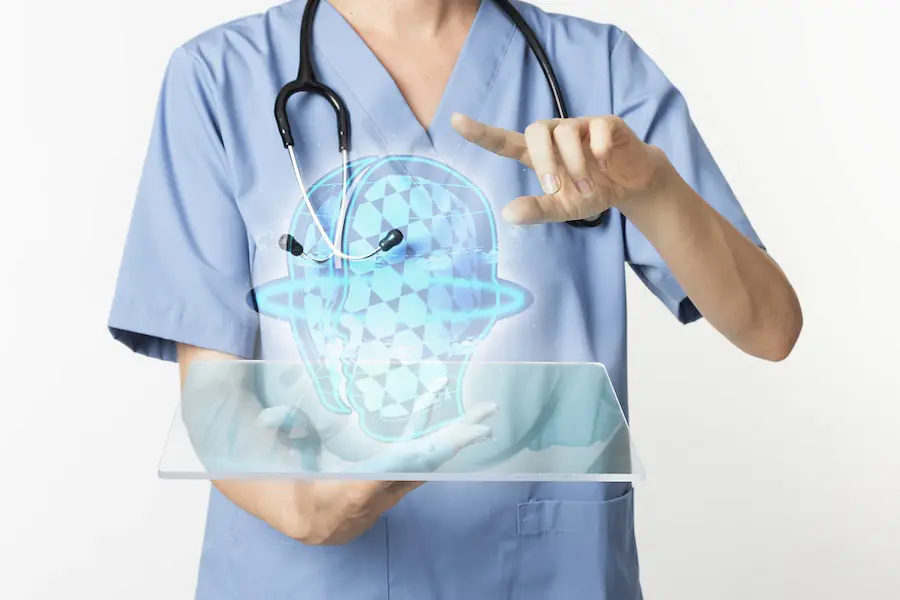In this article, you will learn about some of the Leading Medical Technologies and Advancements of 2022. These technologies have impacted the medical field in many ways. Some of these technologies are 3D printing, Augmented reality, Neurotechnology, and Precision medicine. While we aren’t able to cover all of these developments, we will highlight a few key examples.
3D Printing
3D printing has many applications in the medical field, including skin grafting and reconstructive surgery. It is also being used in bioprinting, a process that uses living cells to produce products that are biocompatible and effective. These new medical technologies can be used in various areas of medicine to improve patient care and reduce medical costs.
3D printing is already being used to create organ models, which are helpful in patient education and pre-operative planning. Some hospitals are even using the technology to make phantoms of organs for use in surgery. A clinic in Dubai has adopted 3D printing in its medical facilities.
Augmented Reality
Augmented reality, or AR, is a technology that enables doctors to diagnose and treat patients remotely. The technology has several uses, including helping doctors and nurses locate veins, facilitating diagnostics and reducing the number of needle pokes. In addition, the technology can help pharmaceutical companies convey drug information. It can also help laboratory technicians keep track of experiments.
In addition to improving medical education, AR can also help doctors perform complex surgeries. AR-based apps are already facilitating the surgical training of doctors around the world. By utilizing AR-based medical training, doctors can accurately track procedures, identify errors, and learn from their mistakes.
Neurotechnology
Neurotechnology is one of the leading medical technologies, with new developments occurring every year. The development and deployment of new neurotechnologies can significantly enhance the quality of patient care and scientific discovery. However, ensuring the development of innovative therapies requires a coordinated effort among multiple stakeholders. The development of neurotechnology platform ecosystems can help address these challenges. In addition to allowing researchers to access multiple neurotechnology-based technologies and devices, such platforms facilitate the development of customized research tools and proof-of-concept prototypes for clinical trials.
Neurotechnology has several applications, ranging from developing assistive devices to treating neurological disorders. A major example is the development of a chip that can control a pacemaker or phrenic nerve stimulator. Other applications include gait neuroprotheses and vision prostheses. These devices are currently in the research phase, but have the potential to revolutionize the treatment of many conditions.
Precision Medicine
Precision medicine is becoming an essential tool for cancer treatments, as it provides accurate genetic profiles of patients that can be used to develop better therapies and save lives. Unlike traditional approaches to treating cancer, which rely on trial and error to discover the best treatment for a given patient, precision medicine aims to target treatments for a specific patient’s specific needs. This approach helps reduce drug wastage and avoidance of unnecessary treatments, as well as decrease the length of a patient’s hospital stay.
The field of precision medicine has seen significant developments over the past decade. One of the key developments in this field is the development of biomarkers. For example, genetic profiling of solid tumors may help identify patients who are candidates for less toxic and tolerable drugs. This technique is not yet widely used, but it is poised to revolutionize cancer care.
Internet Of Medical Things
The Internet of Medical Things (IoMT) is an ecosystem of connected devices, ranging from consumer wearables such as fitness trackers to large stationary medical devices like MRI machines. These devices work in conjunction with cloud computing environments and software that help analyze data. This data enables physicians to provide better care, improve patient outcomes, and lower costs.
The IoMT is becoming increasingly important for the healthcare sector as technological innovations make the process of medical care more efficient. By connecting devices to information systems, IoMT can improve the accuracy of diagnoses, reduce medical mistakes, and lower the cost of care. The IoMT can also help improve access to health care in rural areas that traditionally struggle to attract medical specialists.

